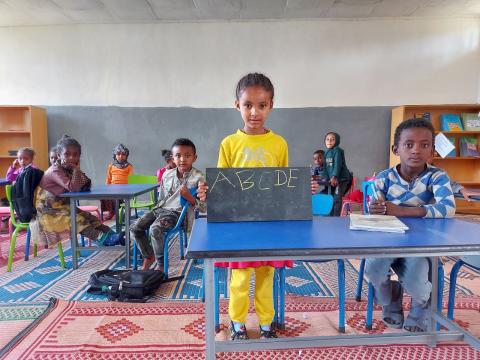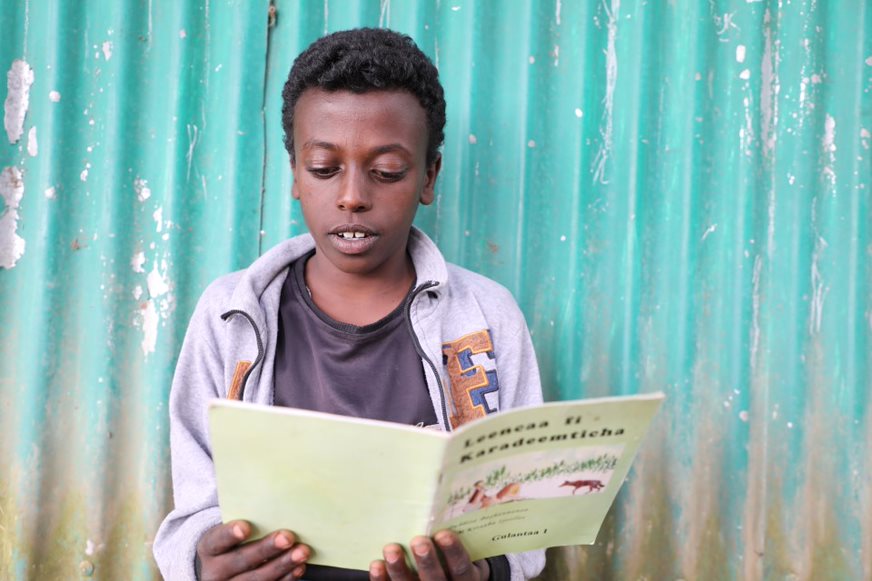Unlock Literacy programme improves children's reading abilities

In Ethiopia, approximately 2.6 million children (43% boys and 57% girls) of primary school age are not in school. And of the children enrolled in school, 63% of students in lower primary school are not achieving the basic learning outcomes needed (UNICEF). Understanding the importance of literacy for individuals, communities, and countries and the need for stronger synergies towards more literate societies for a nation’s development and sustainable growth, World Vision introduced the Unlock Literacy (UL) programme in Ethiopia.
This award-winning programme is designed to guide schools, parents, and communities to better support the literacy development of their children, and to value education and its life-changing potential. It tries to enhance the quality of children’s education and develop children’s cognitive, social and emotional skills to enable them to realise their full potential.
The four core components of the UL approach are;
- Baseline and end-line reading assessments to identify gaps and measure improvements in the five core reading skills.
- Training teachers on the five core reading skills (letter knowledge, phonemic awareness, vocabulary, reading fluency, and comprehension) and creating a print-rich environment to teach the national curriculum with an emphasis on core reading skills.
- Developing teaching and learning materials to better engage children in their learning.
- Enhancing community reading activities and parental awareness workshops to support children.
Unlock Literacy works!
After one year of implementation in Ethiopia, literacy measures for students in the programme were twice as high as those of their peers, and the percentage of children who can read with comprehension has improved from 36% in 2016 to 41% in 2020 (FLAT 2020).
In Adea Berga District, most children in grades one to three were previously not able to read and comprehend texts in their vernacular language. They lacked basic reading acquisition skills of letter knowledge, sounding out words, reading fluency, vocabulary, and comprehension.
In response to this, World Vision started the UL programme in the area in 2016, aiming at increasing the number of children who are able to read at functional levels by the end of fourth grade. The organisation established 78 reading camps in and out of schools, trained 392 teachers and 156 village volunteers, and supported reading camps with more than 10,000 storybooks, bookshelves, print-rich materials, and blackboards. So far, 2,500 children have joined the reading camps and 1,500 of them have graduated.
Thirteen-year-old Kenawak recalls his challenges while he was in grade four a year ago. “I was not able to read and write a single word when I joined this reading camp", he says. "When I was given assignments at school, I used to take them to my friends to do them for me. My teachers were getting angry and my father was unhappy because I was not able to read and write. I was also ashamed of my inability to read.”

Kenawak joined Safara Bacho reading camp a year ago, and he studied the five core reading skills. In one month’s time, his ability to write and read improved drastically.
He says, “I joined the reading camp with great interest and determination of improving my reading and writing skills. I followed all the instructions given to me by my reading camp teacher. In a month's time, I was able to read fluently and my writing improved. I can [now] read 65 words per minute!”
His school performance has also improved. Kenawak finished top of his class in the last academic year.
-
Learn more about our work to support children's education, and get involved.